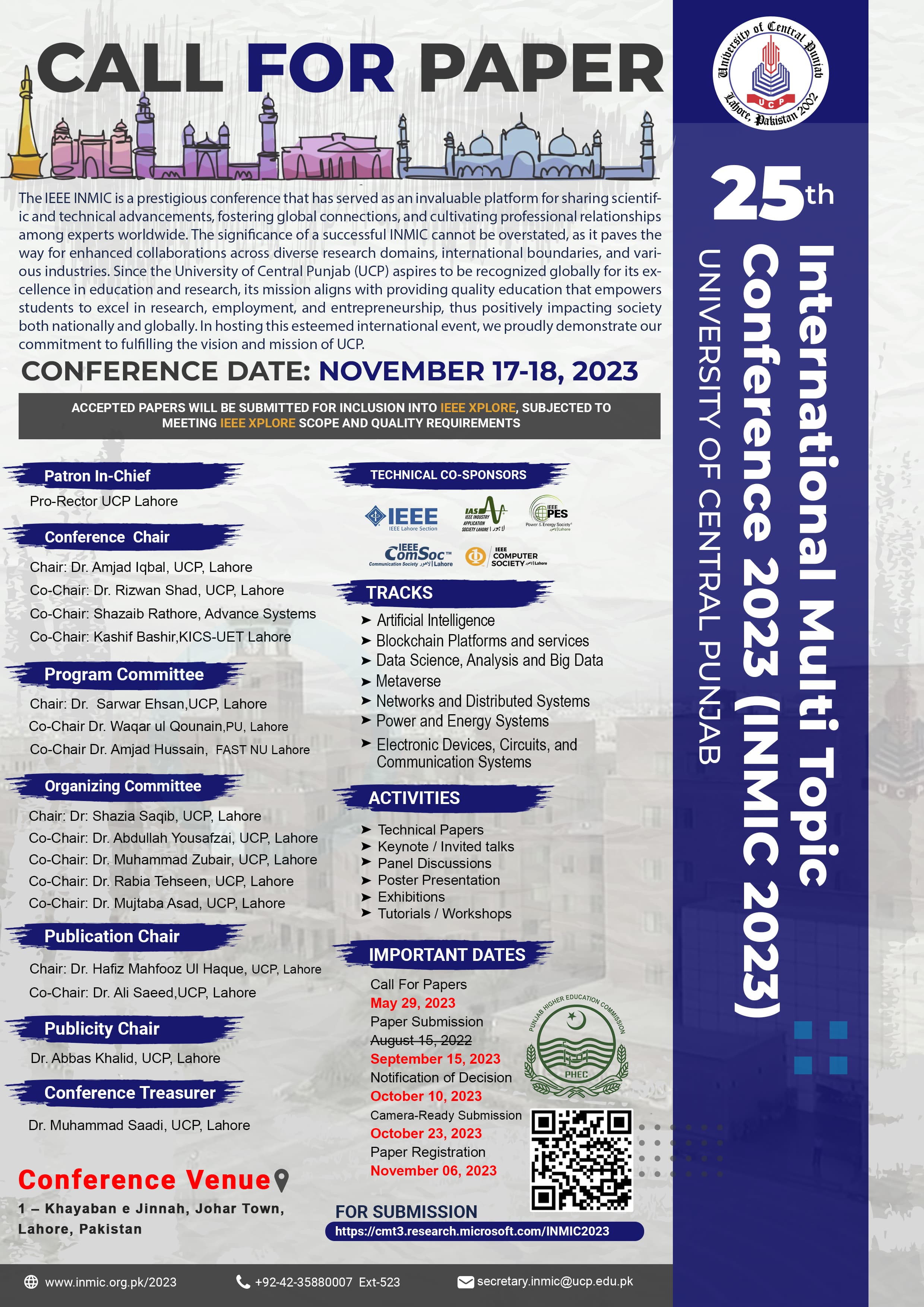


INMIC 2023 eagerly invites high-quality submissions within the fields mentioned in the Call for Papers. Authors must adhere to the two-column IEEE conference format and ensure that their submissions are no longer than 6 pages in PDF format. Please use the conference's Microsoft CMT account for electronic submission; no other formats will be accepted. Submitted papers should not be under consideration for any other conference or journal.
All submissions for INMIC 2023 should conform to the IEEE conference proceeding format, unless otherwise specified in the call for papers. If you encounter any issues with the submission website. For any inquiries or assistance related to INMIC 2023, please contact the conference secretary at secretary.inmic@ucp.edu.pk.
